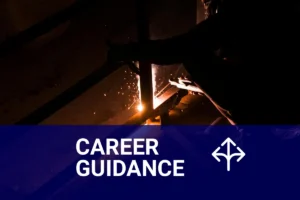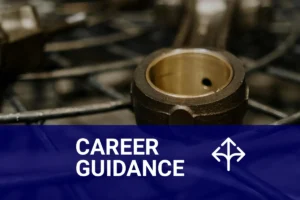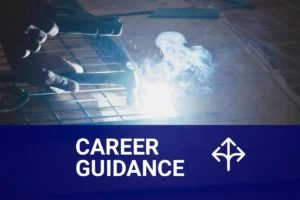How Much Do Welder Inspectors Make? Salary Details, Types, and Factors
Published on: November 18, 2024 | Last modified: March 4, 2025
By: Joe Carter
Welder inspectors are professionals who check welding work to ensure it meets safety and quality standards. They play a crucial role in construction and manufacturing, making sure structures are strong and reliable.
Now, let’s tackle the burning question: how much do welder inspectors make? It’s key to know the earning potential in this field because it helps shape your career goals and expectations. In my experience, understanding salary ranges can guide you in your professional development and training, leading to better job opportunities.
In this article, we’ll explore how much does a weld inspector make, different types of welder inspectors, prerequisites for becoming one, and essential steps you should take. I’ll also cover safety tips, factors influencing salaries, and the benefits of being a welding inspector. We’ll even look at common problems and their solutions, plus alternatives for those interested in this exciting career.
Contents
- How Much Do Welder Inspectors Make?
- What Are Welder Inspectors?
- Types Of Welder Inspectors
- Prerequisites for Becoming a Welder Inspector
- Safety Tips
- Steps to Become a Welding Inspector
- Types Of Salaries for Welder Inspectors
- Factors Influencing Salaries Of Welder Inspectors
- Salary Growth Opportunities for Welder Inspectors
- How to Address Common Problems
- Benefits Of Being a Welding Inspector
- Industry Uses Of Welder Inspectors
- Alternatives for Becoming a Welder Inspector
- Frequently Asked Questions (FAQs)
- Conclusion
- References
How Much Do Welder Inspectors Make?
Welder inspectors ensure weld quality. So, how much do welder inspectors make? They earn $46,000 to $90,000 (USD) annually, depending on experience and location. It’s a challenging role, often found in construction and manufacturing industries.

What Are Welder Inspectors?
Certified welding inspectors play a critical role in ensuring welding work meets safety and quality standards. They’re responsible for examining welds for defects and adherence to codes. Generally, they inspect welds on structures, pipelines, and components. This often involves using tools like ultrasonic testers or X-ray machines to assess integrity.
As for how much welder inspectors make, it varies widely. From my experience, the salary reflects their expertise and certification levels. You’ll see figures ranging from about $50,000 to over $80,000 a year (Roughly $24 to $39 Per Hour), depending on location and experience.
I remember using certification programs to enhance my skills as an inspector. Obtaining a Certified Welding Inspector (CWI) certification can really set you apart in the field. When I started, I was curious about how much certified welding inspectors earn each year; it can significantly influence your income and job prospects in this rewarding profession.
Types Of Welder Inspectors
What are the types of welder inspectors and what can they earn?
-
CWI (Certified Welding Inspector)
A CWI is a foundational certification for welding inspectors. CWIs typically earn between $60,000 and $80,000 annually. To boost earnings, pursue specialized training and gain experience in various welding processes.
-
SCWI (Senior Certified Welding Inspector)
SCWI is an advanced certification for experienced inspectors. Their earnings range from $80,000 to $100,000 per year. To maximize salary, gain additional experience in management roles and consider leading complex projects.
-
Welding Quality Control Inspectors
These professionals ensure welding quality standards. They generally earn about $50,000 to $70,000 annually. To increase income, enhance skills in specific industries like manufacturing or construction, as a successful welding career can lead to higher job opportunities and salaries.
It’s crucial to understand the implications of lacking proper safety gear, particularly when considering welding without a mask.
-
Non-destructive Test Inspectors
NDT inspectors check welds without causing damage. Their salaries range from $60,000 to $85,000 per year. To earn more, consider certifications in specialized techniques like ultrasonic or radiographic testing.
-
Welding Supervisors
Welding supervisors manage teams of inspectors and welders. Their earnings typically range from $70,000 to $90,000 annually. To increase pay, develop leadership skills and seek positions in high-demand sectors. It is also crucial for welding supervisors to ensure safety by knowing how to ground a welder properly, as this practice is vital for preventing accidents and ensuring efficient equipment performance.
We covered the various types of welder inspectors here. We will now cover the prerequisites for becoming a welder inspector.
Prerequisites for Becoming a Welder Inspector
What do you need to get started?
- Certified Welding Inspector (CWI) certification: You need certification, like the AWS CWI, to validate your skills and enhance your credibility.
- Ultrasonic Testing Equipment: You’ll need equipment such as the Olympus EPOCH 650 for non-destructive testing (NDT), ensuring weld integrity.
- Welding Procedure Specifications (WPS): Obtain documents like the AWS D1.1. They guide your inspection processes and help prevent errors.
- Inspection Report Templates: Use templates from ASNT for documentation. They streamline reporting and ensure compliance.
We’ve wrapped up the requirements, skills, and qualifications for becoming a welder inspector here. Let us turn our attention to safety tips.
Safety Tips
Let’s look at essential precautions for welder inspectors.
- Protective Gear – Always wear gloves, helmets, and goggles. I recommend Miller Electric’s welding helmet for its visibility.
- Ventilation – Ensure good airflow to prevent breathing issues. Use industrial fans to keep the workspace fresh.
- Fire Safety – Keep a fire extinguisher nearby to handle potential fires. A 2.5 lb (1.1 Kg) ABC extinguisher works well in most settings.
- Equipment Checks – Regularly inspect your welding gear. I’ve used the Hobart Handler 210MVP to prevent tool failure.
Your safety is crucial, so prioritize these precautions during inspections.
That covers essential safety tips for welding. Let’s now take a look at the steps to become a welding inspector.
Steps to Become a Welding Inspector
We’ll cover the steps to understand the earnings of welding inspectors.
-
Research Industry Salaries
Start by gathering information on welding inspector salaries in your area. Pay scales vary based on location, experience, and certifications. As of 2023, a Certified Welding Inspector (CWI) can earn between $53,000 and $100,000 per year, depending on expertise. Check job boards or websites like Glassdoor for specific regional data.
Don’t forget to explore other factors influencing income—certification levels, industry type, and company. Inspectors in construction often earn differently than those in manufacturing. If possible, talk to current inspectors for insights into salary ranges and variations.
-
Consider Certification
Obtain your Certified Welding Inspector (CWI) credential if you haven’t already. The American Welding Society (AWS) offers this certification, requiring completion of a seminar, passing scores on exams, and welding experience. Certifications can significantly increase your pay, with CWI holders earning about 10-20% more than non-certified inspectors. Pursuing this certification is vital for maximizing your income potential.
Look for training programs or workshops nearby to streamline certification. Many employers provide funding for these courses—ask around! Learning about organizations that can assist in this process will make your journey smoother.
-
Expand Your Skills
Take courses or workshops to diversify your skills beyond welding inspection. Learning new welding techniques or non-destructive testing (NDT) methods can increase your market value. Inspectors who perform various tasks often command higher salaries, some reaching up to $110,000 annually. Focus on continuous learning to stay competitive.
Utilizing online courses or community colleges can aid in growing your expertise. Networking with experienced welders and inspectors can provide useful insights on trending or in-demand skills.
-
Network in the Industry
Join welding industry groups or attend conferences to connect with professionals in your field. Building relationships with welders and inspectors can lead to job opportunities or mentorships. Inspectors with strong networks typically find positions faster and can negotiate better salaries. Your contacts can be invaluable when pursuing high-paying inspector roles. As you grow in your career, you might need to explore advanced skills such as removing unwanted welds.
Engaging on platforms like LinkedIn can boost your visibility. Sharing your skills, experiences, and successes can attract potential employers or clients seeking qualified inspectors.
You should now have a good understanding of how to become a welding inspector. In the next part, we’ll discuss welding inspector salaries.
Types Of Salaries for Welder Inspectors
Let’s discuss the salaries for welder inspectors, covering entry-level, mid-level, senior-level, contractor salaries, and regional variations.
-
Entry-level Salaries
Entry-level welder inspectors earn around $40,000 to $50,000 a year ($19 to $24 Per Hour). This includes newly certified inspectors or those with less than two years of experience. It’s a great starting point to enter the industry and gain valuable skills. Proper knowledge about safety measures such as how to treat flash burn in eyes is essential for welders.
-
Mid-level Salaries
With experience, mid-level salaries range from $50,000 to $70,000 a year ($24 to $34 Per Hour). Inspectors in this category typically have two to five years of experience and may lead inspection teams or manage complex projects. This pay is a sweet spot for skills and responsibilities.
-
Senior-level Salaries
Senior welder inspectors can earn $70,000 to $90,000 a year ($34 to $43 Per Hour). These professionals often have five or more years of experience and usually manage significant projects or departments. This is where your expert eye for detail really pays off.
-
Contractor Salaries
Contractor salaries can be enticing, ranging from $50 to $100 per hour, translating to $104,000 to $208,000 a year. This varies greatly based on project demand and location. Working as a contractor offers flexibility but comes with less job security.
-
Salary Variations by Region
Salaries for welder inspectors also vary by region. For example, inspectors in areas with a heavy industrial presence, like Texas or California, can earn $10,000 to $20,000 more than the national average. It’s smart to consider local job markets when evaluating your options!
Factors Influencing Salaries Of Welder Inspectors
What factors influence the pay for welder inspectors? Let’s dive in.
-
Geographical Location
Your location significantly impacts your salary. For example, welders in California can earn around $75,000 a year, while those in Mississippi may make about $40,000 annually.
-
Level Of Certification
Certification matters in this field. A certified welding inspector (CWI) can make $60,000 to $90,000 a year, compared to non-certified inspectors, who might earn $35,000 to $50,000.
-
Years Of Experience
Gaining experience is essential. An inspector with over 10 years can earn upwards of $85,000, while entry-level positions often start around $40,000.
-
Industry Of Employment
Industries like oil and gas or aerospace usually pay higher wages. Welding inspectors in these fields can make $70,000 on average, while those in manufacturing may earn about $50,000.
-
Type Of Work Environment
Work settings, such as fieldwork versus office jobs, also affect salaries. Field inspectors typically earn more, around $68,000, due to the demanding nature of their work.
Salary Growth Opportunities for Welder Inspectors
Understanding salary growth can be crucial for your career as a welder inspector.
| Experience Level | Average Salary (USD) | Potential Growth (Annual %) |
|---|---|---|
| Entry-Level (0-2 years) | $40,000 – $50,000 | 5-10% |
| Mid-Level (3-5 years) | $50,000 – $70,000 | 10-15% |
| Senior Level (5+ years) | $70,000 – $90,000 | 15-20% |
| Contractor | $104,000 – $208,000 | Variable |
As you gain experience and enhance your certification, the salary can increase significantly. Those with specialized skills or certifications may see growth rates exceeding the averages listed.
Impact of Certifications on Salary Growth
Certifications play a key role in salary growth. Here’s how:
- CWI Certification: Can boost your earnings by 10-20%.
- SCWI Certification: Further increases potential earnings significantly.
- Specialized Certifications: Like NDT techniques can lead to higher hourly rates.
In essence, the right certifications and experience can open doors to higher salaries and better job opportunities in the welding inspection field.
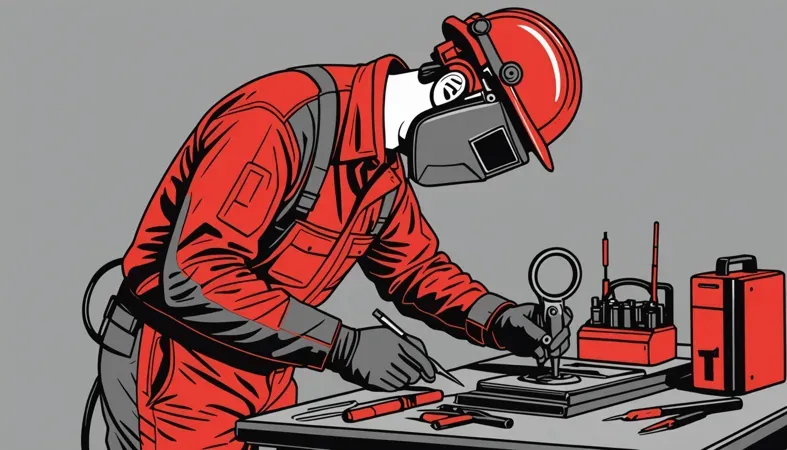
How to Address Common Problems
Let’s look at issues faced by welder inspectors.
-
Certification Renewal Issues
Welder inspectors often struggle with certification expiration. To track this, check your expiry date regularly. To resolve it, set a calendar alert 3 months prior.
-
Discrepancies in Inspection Reports
Welder inspectors encounter mismatches in reports. Double-check your data entries immediately. Use a standard template for consistency.
-
Handling Difficult Clients
Welder inspectors often deal with challenging clients. Identify red flags in communication. Use clear, simple explanations to align expectations.
-
Staying Updated on Standards
Welder inspectors must stay current with codes. Subscribe to trade journals and online courses. Dedicate an hour each month for this purpose.
-
Managing Time Effectively
Welder inspectors face tight schedules. Identify time-wasting activities. Use tools like checklists to streamline your workflow.
Benefits Of Being a Welding Inspector
The main benefit of being a welding inspector is job security. There’s always high demand for skilled inspectors, providing peace of mind.
Additionally, you’ll enjoy competitive salaries, advancement opportunities, diverse work environments, and chances to travel. Plus, you ensure safety and quality in critical projects.
Industry Uses Of Welder Inspectors
I’ve known people to use the expertise of welder inspectors to maintain high safety standards. However, their roles extend beyond that, including:
- Quality Assurance: Inspectors ensure weld integrity in construction projects. Their assessments prevent costly repairs, which is critical for buildings and bridges.
- Compliance Checks: In industries like oil and gas, inspectors verify welds against industry standards. This secures compliance and enhances safety protocols.
- Certification Processes: Businesses require inspections of welds before certifying products. This ensures they meet rigorous quality standards, boosting consumer trust.
- Maintenance Inspections: Regular checks of existing welds prolong machinery lifespan. This is essential in manufacturing and processing industries to reduce downtime.
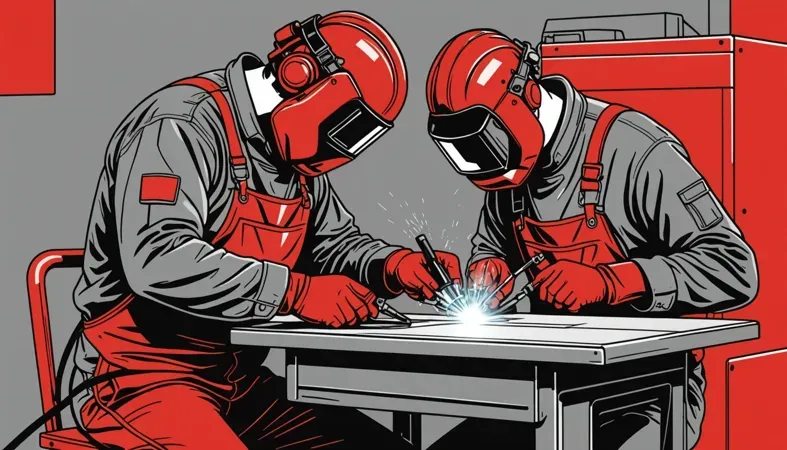
Alternatives for Becoming a Welder Inspector
There are several routes to gain expertise comparable to working as a welder inspector. You might consider certifications like the Certified Welding Inspector (CWI) from the American Welding Society. This credential can enhance your job prospects and give you a competitive edge; for more insights on this journey, you can explore various pathways in welding career guidance without necessarily focusing on salary figures directly.
Safety is a crucial aspect of welding careers. Understanding how to prevent cancer from welding is essential for both personal health and professional longevity.
Additionally, training programs, such as those offered by local technical colleges, can provide hands-on experience without the expense of a degree. Workshops and short courses can also keep skills up to date and may be preferred for those already in the field seeking certification renewal. These options can lead to lucrative opportunities in the same domain, so they’re worth exploring!
Frequently Asked Questions (FAQs)
Now let us look at some common questions I typically get asked.
What is the Highest Paid Welding Inspector?
Yes, the highest paid welding inspector can earn quite a sum. These professionals can make between $85,000 and $120,000 annually, depending on factors like location, certifications, and experience. For instance, inspectors in oil and gas sectors often score the highest salaries due to the high-risk nature of their work.
Is It Worth It to Become a Welding Inspector?
Yes, it is worth it to become a welding inspector. The career offers job stability and competitive pay, often exceeding $70,000 USD yearly. Additionally, skilled inspectors are always in demand, particularly in construction and manufacturing sectors.
What Type Of Inspectors Make the Most Money?
Welding inspectors often make some of the highest salaries among inspectors. Fields like aerospace and underwater welding procedures pay well due to strict safety standards and technical complexities, with salaries reaching above $100,000 per year for elite positions.
What Does a Certified Welding Inspector Require?
A certified welding inspector requires specific training and certifications. Typically, you need to complete the Certified Welding Inspector (CWI) exam, which demands both practical experience and a comprehensive understanding of welding processes and standards.
How Do I Become a Certified Welding Inspector?
To become a certified welding inspector, you must meet certain qualifications. Applicants need a high school diploma plus a minimum of 5 years of experience in welding inspection or related fields. Completing training courses boosts your chances significantly. A crucial aspect of this field is mastering the techniques to see better when welding.
What Are the Main Responsibilities Of a Welding Inspector?
The main responsibilities of a welding inspector include evaluating weld quality and ensuring compliance with industry standards. They also conduct visual inspections and tests like ultrasonic or X-ray to assess the integrity of welds in various projects.
Conclusion
We covered a variety of topics, including what welder inspectors are, their types, prerequisites, steps to become one, safety tips, salary types, factors affecting salaries, common problems, aftercare, and advanced tips. We also looked into the benefits of being a welding inspector, industry uses, and alternatives to becoming one. Lastly, we answered common questions about certified welding inspectors and their earnings.
So, how much do welder inspectors make? On average, they earn between $20-$45 per hour, depending on experience and location. Feel free to reach out if you have further questions about how much a welding inspector makes or any related topic.
If you’re seeking additional insights and resources, we invite you to visit our homepage at What is Welding, where you can find more expert blogs and valuable welding advice.
References
- International Organization for Standardization. (2017). ISO 3834: Quality Requirements for Fusion Welding of Metallic Materials. Geneva, Switzerland: ISO.
Joe Carter is a retired welding professional with over 40 years of hands-on experience in the industry, spanning ship repair, structural welding, and even underwater projects. Joe is a master of MIG, TIG, and Stick welding. Passionate about mentoring the next generation of welders, Joe now shares his decades of expertise and practical insights to help others build rewarding careers in welding.
American Welding Society, Career Opportunities, Job Safety, Safety Tips, Salary, Welder Inspectors, Welding, Welding Certifications, Welding Gear, Welding Inspection, Welding Techniques


